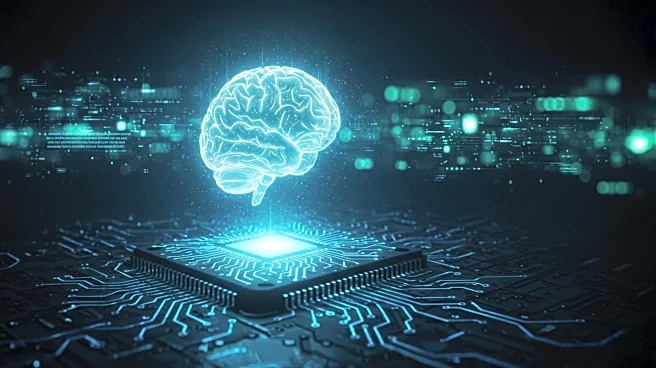What is the story about?
What's Happening?
Researchers have proposed a new generation of artificial intelligence, termed 'Liquid AI,' which can continuously modify and improve itself without human intervention. This AI framework aims to overcome the limitations of static models by enabling systems to evolve dynamically, adapting to changing environments and objectives. The study outlines mechanisms such as entropy-guided knowledge graphs and hierarchical Bayesian optimization to facilitate real-time adaptation and multi-agent collaboration.
Why It's Important?
Liquid AI has the potential to revolutionize various sectors, including healthcare, industry, and scientific research, by providing systems that can autonomously refine and enhance their capabilities. This could lead to more responsive and resilient applications, such as healthcare systems that improve diagnostic methods in real-time or industrial controls that adapt to environmental changes. However, the complexity of self-modifying AI raises significant design and governance challenges that must be addressed to ensure safe and effective deployment.
What's Next?
The practical implementation of Liquid AI will require substantial infrastructure and long-term research efforts. Ethical and safety considerations will be paramount, necessitating robust monitoring and regulatory oversight to mitigate risks associated with autonomous system modifications. The development of governance models tailored to continuously evolving AI systems will be crucial for ensuring transparency and accountability.















